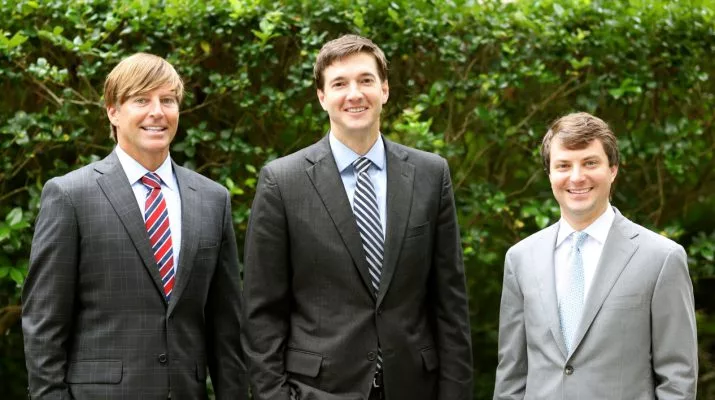The Veterans’ Victory House (VVH) is the realization of a great idea. The South Carolina Department of Health built the center to provide long-term care for veterans. The Walterboro facility provides housing, healthcare, personal care, meals, and other services.
As with many nursing homes across the country, however, the facility experiences its share of difficulties. Even before COVID-19 became an issue, the facility dealt with negative feedback from Medicare, family members, and VVH employees.
The local media have sensationalized a few of the highest-profile VVH stories. Official Medicare/Medicaid reports show that a clear pattern of issues has triggered that attention. The home’s residents rarely speak out, but their families do, and they have pointed out problems with medical care, injuries, and other adverse situations. As you review formal reports and other resources, you may detect a distinct pattern of negligent incidents.
If so, please call the Hughey Law Firm right away. We know how to fight these cases. In fact, when other lawyers in South Carolina need to take on complicated nursing home neglect and abuse claims, they frequently come to us for help. We’ve even fought Veterans’ Victory House over the negligence and abuse of its residents and resolved or litigated many of those cases in our clients’ favor. We are especially proud to help these military veterans who served our country—and especially outraged to find them mistreated by the people entrusted with their care.
You can trust us to protect your loved one and secure the best compensation the law allows. Call our personal injury attorneys today.
What Veterans’ Victory House Claims
The South Carolina Department of Mental Health completed the 126,000 square foot Veterans’ Victory House on a 20-acre site in Walterboro, South Carolina in 2006. The state opened the facility in a ceremony on Veterans Day that year.
Promotional materials describe large meeting spaces and gracious resident accommodations. VVH boasts five separate pavilions, each named to honor South Carolina military veterans. Since the VVH opened its doors, it has provided residential care for veterans who have service records dating back to World War II.
The facility includes three 56-bed nursing units and a 52-bed dementia unit.
To qualify for admissions, residents must:
- Have received a general or honorable discharge from the military;
- Have been a South Carolina resident for at least one year; and
- Need long-term nursing care.
Veteran’s Victory House operates with a 250-person staff. Residents requiring medical care have access to a primary care doctor, but they may also see their own physicians. The facility has a full-time nursing staff, a rehabilitation therapist, and a pharmacy. A cooking staff prepares all meals and works with an on-site dietitian. Social workers provide counseling and assist residents with government benefits and personal matters. All residents have access to transportation services, an ambulance, a beautician/barber, and free laundry services.
When it meets the duty to care, VVH can fill a critical need for area veterans who require residential and medical treatment. When VVH fails, as it has far too often, the fighting men and women of our nation suffer needlessly.
Problems at Veteran’s Victory House
As you search for details about Veteran’s Victory House, you find contradictory information. Promotional materials, media stories, online reviews, and government reports all portray a slightly different story. When you piece together the network of formal and informal complaints, news stories, employee reviews, and consumer reviews, you get a snapshot of a nursing home with negligence issues that require attention and legal intervention.
Centers for Medicare and Medicaid Services Reviews
Veterans Victory House serves veterans only. Medicare, Medicaid, and the VA provide funding and/or benefits for every resident. Because of these financial commitments, VVH is periodically under governmental scrutiny. The South Carolina Department of Health and Environmental Control (DHEC) conducts Medicare/Medicaid compliance inspections. Officials make periodic unannounced visits with survey teams that include nurses, pharmacists, social workers, and other specialists.
CMS Ratings
The Centers for Medicare and Medicaid Services uses DHEC reports to evaluate care facilities based on a Five-Star Quality Rating System. As of January 27, 2021, the Medicare.Gov VVH profile page shows a two-star overall rating out of five stars.
Overall ratings include three separately-rated categories; below, we list VVH’s three ratings:
- Health inspections: one star
- Staffing: four stars
- Quality of resident care measures: five stars
Medicare calculates its health inspection ratings based on the three most recent inspections and also considers the past three years of complaint inspections and infection control inspections. Official records for VVH show 23 health-inspection related citations for self-reported conditions. Medicare also issued two infection control citations and four health citations.
CMS Inspection Reports
Formal Medicare Inspection Summaries have focused on incidents from residents’ phone call privacy to inappropriate care plans. The more consequential reports address resident altercations, inattentive staff, improperly administered medication, and unsafe food preparation. In December 2018, Medicare issued $260,746 in fines against the facility. Medicare has addressed numerous issues since then but has not charged any similarly substantial penalties. Recent changes in nursing home fining procedures eliminated daily penalties. Fines are now less controversial.
The Medicare website provides copies of many past site investigations. The reports summarize incidents using optimistic phrasing. Even though you know a patient had a problem with a medication error, you don’t see a specific description of that error. Still, the reports show a consistent pattern of small incidents and ongoing problems. None of the CMS report summaries contain information on the allegations that the media and residents’ family members deemed worthy of further action.
Below is information from a few CMS reports.
- 5-31-2019: Facility failed to serve food under sanitary conditions. The report included comments about expired food, an unclean refrigerator, and an unclean microwave. One report mentioned a food service worker who touched multiple items with gloved hands and wore the same gloves as he served food. The investigator witnessed improper garbage handling just outside the main kitchen and grease/food debris accumulating in a grease trap and leaking to the ground.
- 11-19-2020: Failed to ensure that a resident had sufficient privacy when making a telephone call. The day-area phone was broken, so residents had to make private calls in an open area or an office with the door open. In one incident, an administrator held the phone while the resident spoke to a family member.
- 3-2-18: Failed to maintain a person-centered care plan. The staff allowed a resident to remain bottom-half-naked because he preferred it that way. The patient’s room was cluttered and disorganized and had a strong urine smell. An inspector observed a container of urine on the breakfast tray.
- 3-22-19: The facility failed to ensure that each resident remained free from abuse. A surveyor’s investigation documented 13 events involving patient-to-patient altercations. Patients in long-term care homes often threaten and sometimes harm one another. The staff made a police report after one patient cut another patient’s hand. In one incident, one resident jabbed an eating utensil at another patient. Another resident threw coffee on an eating companion. When the investigator took staff statements and reviewed videos, he determined that the staff doesn’t always intervene when these altercations occur.
Family Reviews
In online reviews on Caring.com, a few negative reviews stood out, including:
- May 9, 2019, one-star rating: A family member wrote that she feels her dad would still be alive if she hadn’t taken him to that “nightmare place.” Her father was an amputee but in good condition before she took him to VVH. Within a week, he was in the ICU and on a ventilator. She had asked a nurse to arrange for him to see a doctor. She explains that the nurse was argumentative and never made the medical arrangements. After her father became sick, the facility delayed his care for several days. Her father died after a three-week hospital stay. The reviewer says the facility never located all of her father’s belongings. It’s difficult to determine the date of this incident as the person wrote a similar review in 2016.
- December 19, 2018, two-star rating: A family member suggested that others should “be aware” of the care their loved ones will receive at VVH. She stated that her husband suffered many falls and bed sores while a resident at the facility.
Media Reports
Over the past several years, local media outlets have reported incidents involving Veteran’s Victory House.
Consider:
- The Post & Courier and other local news outlets reported on a medication incident. The newspaper learned that CMS cited the facility for a violation. Allegedly, VVH fired an employee for improperly administering a resident’s medicine.
- TV Station Channel 5 speculated that VVH might lose its federal funding. The reporter based this on problems uncovered in a Department of Health and Environmental Control investigation for CMS. The station interviewed Pam Copeland, a former VVH resident’s daughter. She said her father died due to an infection in his bloodstream. She was one of many who filed complaints with the DHEC. The station announced that the VVH administrator had stepped down from her position.
- The Independent Mail interviewed a VVH resident’s wife about her husband’s repeated infections, bumps, and bruises. The news article discussed several lawsuits and family complaints related to another veteran’s home under HMRVSI management.
Former Employees Also Have a Lot to Say
Employee reviews provide another perspective on Veterans Victory House. Comments and ratings posted on the job-hunting site Indeed share several concerns. Twenty-one employees offered reviews. Even with a few five-star reviews, the facility earned a cumulative rating of 2.9 stars.
As an unregistered viewer, you see only a few of Indeed’s employee reviews. Some are titles only, and all were from former employees.
Management and administration were the primary focus of most negative feedback.
- A former Certified Nursing Assistant alleged that management hired personal friends and that managers “cover up everything.” This CNA concluded: “it’s about their friendships and money, NOT the Veterans.” She gave the VVH a one-star rating.
- A former Director of Social Services titled her review “Change in administrative team not good,” and gave VVH a two-star rating.
- A former CNA said: “beautiful building, just [ran] by the wrong people.” She gave the facility a one-star rating.
Several employees responded to the Indeed site’s Q&A about changes that might make VVH a better place to work. Again, these reviews focused on management and administration.
Some of the comments included:
- “Fire the contractor running the facility”
- “Fire the contract company running facility” (specifically the administrator, physician, and pharmacist.)
- “Find a more caring contractor to staff the facility”
When asked about advice for the CEO, one employee suggested that families had made phone calls to the CEO, complaining about Veteran’s Victory House, “yet they continue to do nothing.” A dietary aide responded” “train your employees.” In discussing sick pay policies, an employee complained that management expected CNAs and nurses to work whether or not they felt sick. She wrote her review in 2018 and related their sick policy to a “flu lockdown” that year.
COVID-19 at Veterans Victory House
As with nursing homes across the country, Veterans Victory House is struggling to manage COVID-19 outbreaks. As of the publication of this blog post, the nursing home maintains a no-visitor policy.
The DHEC Nursing Home and Extended Care Facilities COVID-19 page provides the following VVH statistics:
- Resident infections: 32
- Resident deaths: 7
- Staff infections: 37
- Staff deaths: 1
VVH Is Owned by the Government but Operated by a Business
Nursing homes fill a critical need, but most are for-profit businesses. Veterans Victory Home is slightly different from the typical nursing home model. The South Carolina Department of Mental Health developed and constructed the facility exclusively for the treatment of veterans. It’s part of the Veterans’ Administration’s (VA) State Veterans Homes program. Based on Federal law, certified state VA homes qualify for a per-diem payment for each resident in their facility. SCDMH oversees the VVH facility in Walterboro. None of these governmental entities are traditional businesses other than the management company.
HMR Veterans Services, Inc. runs the facility’s day-to-day operations. This company control personal, site programs, and other contract services. The company provides management and other services for state veterans’ home facilities in Texas, Maryland, Alabama, and South Carolina.
In addition to management services, the HMRVSI website lists affiliated services for veteran’s facilities, including consulting services, information technology services, compliance survey preparedness, new facility construction and recognition, financial services and billing, leadership training, staff development, marketing, occupancy, and HMRX Pharmacy Services.
As with any nursing home business, the entities who own, operate, or manage a nursing home retain responsibility for employees’ negligent actions.
Employee negligence often occurs due to management shortcomings, including:
- Poor hiring and training practices;
- Inadequate employee monitoring and oversight;
- Inadequate staff or inappropriate staff;
- Lack of safety protocols to prevent medication errors;
- Inadequate safety procedures; and
- Lack of resident nutrition and hydration guidelines and controls.
Medical negligence laws and guidelines hold medical professionals to a different standard. They are often responsible for their own negligent acts.
Federal and State Statutes Protect Your Aging Loved Ones
State and Federal laws establish a framework of guidelines to protect aging loved ones from nursing home negligence. South Carolina’s Adult Protection Codes provide guidelines for taking legal actions against people or entities that harm a senior in their care. Medicare and Medicaid guidelines establish protocols for nursing home care. Nursing homes, including Veterans Victory House, are subject to periodic inspections but remain largely self-monitoring. It’s up to friends and family to hold these facilities accountable for their negligent actions.
Protect Your Loved One’s Legal Rights
If you have loved ones at the Veterans Victory Home, consider consulting a nursing home attorney at the Hughey Law Firm to discuss their legal rights. After their service to our nation, VVH residents deserve better than proper treatment and care—they deserve our best.
When you consult our attorneys at the Hughey Law Firm, you have a chance to share your concerns. We will listen to you and explain your options. We provide a free consultation, and you have no obligation to commit to further legal action.
Call us now at (843) 881-8644 or send us a confidential message through our contact page for your free case evaluation.
Client Testimonial
“Thank you Hughey Law Firm! It was a pleasure to work with you on my case! From the beginning, every contact I had with your firm was professional, kind, helpful, and painless! I always felt kept in the loop, and important to you as a client. If you are looking for a personal injury attorney with integrity, I would highly recommend Hughey Law Firm!”
Rating: 5/5 ⭐⭐⭐⭐⭐
Karen C.
Read more reviews on Google!


